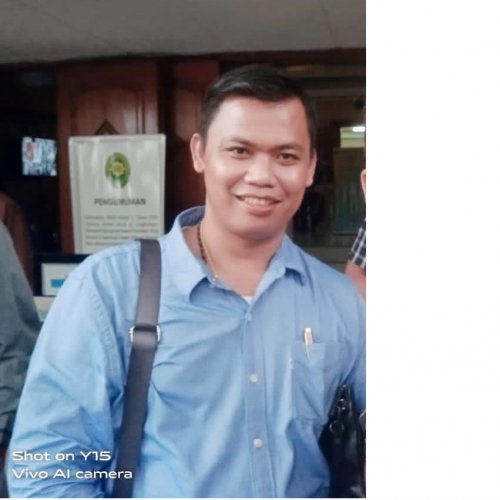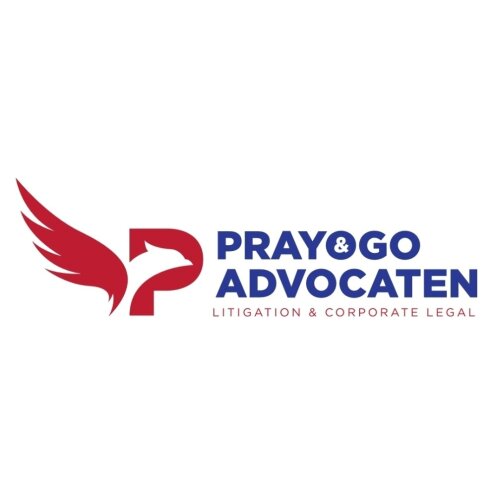Best Patent Lawyers in Tangerang
Share your needs with us, get contacted by law firms.
Free. Takes 2 min.
List of the best lawyers in Tangerang, Indonesia
About Patent Law in Tangerang, Indonesia
Patent law in Tangerang, Indonesia, falls under the national Indonesian patent regulations. According to the Indonesian Patent Law, a patent is a form of Intellectual Property Rights that can be obtained for an invention. The invention can be in the form of a product or a process that presents a new way of doing something or offers a new technological solution to a problem.
Why You May Need a Lawyer
Understanding patent laws and navigating the patent registration process can be complex. You may need a lawyer to help interpret the law, guide you in the preparation of your patent application, and represent you in legal proceedings in case of patent infringement claims. A lawyer can also provide advice on the negotiation and drafting of patent licensing agreements.
Local Laws Overview
Indonesia operates on a "first to file" patent system. As such, the priority is given to the first person to file a patent application regarding a specific invention. The patent law also provides protection for a period of 20 years from the date of filing. Furthermore, Indonesia adheres to the Paris Convention, thus the patent application in Indonesia benefits from a priority right based on a corresponding application filed in another convention country.
Frequently Asked Questions
1. What types of patents are recognized in Tangerang, Indonesia?
Indonesia recognizes three types of patents: Standard patents for new inventions, Simple patents for new inventions that have a shorter 'product life', and Secrecy patents, for inventions relevant to national defense.
2. How long does it take to get a patent registered?
The process generally takes between 24 to 36 months from the date of filing the application.
3. How can one challenge a patent in Indonesia?
A patent in Indonesia can be challenged by petitioning for a cancellation action to the Commercial Court.
4. Can a foreigner apply for a patent in Tangerang?
Yes, foreigners can apply for a patent in Indonesia but they must appoint an agent residing in Indonesia to represent them before the patent office.
5. What happens if I don't patent my invention?
If you don't patent your invention, others may be able to use, sell, or manufacture your invention without your permission and without owing you any compensation.
Additional Resources
The Directorate General of Intellectual Property under the Ministry of Law and Human Rights of the Republic of Indonesia is a valuable resource when it comes to understanding patents. They have a website where they publish relevant updates and guidelines. Another resource is the Indonesian Association of Intellectual Property Consultants, which provides professional advice on Intellectual Property Rights.
Next Steps
If you need legal assistance with patents in Tangerang, it's essential that you consult with a lawyer who specializes in patent law. They can help you prepare and file your patent application, or defend your existing patent rights in a legal dispute. It's advisable to prepare all relevant documents and details about your invention before consulting your lawyer.
Lawzana helps you find the best lawyers and law firms in Tangerang through a curated and pre-screened list of qualified legal professionals. Our platform offers rankings and detailed profiles of attorneys and law firms, allowing you to compare based on practice areas, including Patent, experience, and client feedback.
Each profile includes a description of the firm's areas of practice, client reviews, team members and partners, year of establishment, spoken languages, office locations, contact information, social media presence, and any published articles or resources. Most firms on our platform speak English and are experienced in both local and international legal matters.
Get a quote from top-rated law firms in Tangerang, Indonesia — quickly, securely, and without unnecessary hassle.
Disclaimer:
The information provided on this page is for general informational purposes only and does not constitute legal advice. While we strive to ensure the accuracy and relevance of the content, legal information may change over time, and interpretations of the law can vary. You should always consult with a qualified legal professional for advice specific to your situation.
We disclaim all liability for actions taken or not taken based on the content of this page. If you believe any information is incorrect or outdated, please contact us, and we will review and update it where appropriate.









